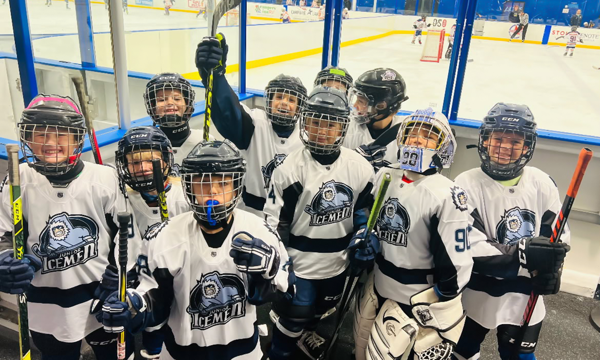Paul Esdale knew there was a burgeoning hockey community within the Jacksonville, Florida, area three-and-a-half years ago when he first arrived.
Esdale, who runs Community First Igloo, an ice rink in Jacksonville, tapped into that potential right away and has witnessed dramatic growth in hockey participation since he took over at the rink.
“There was a good hockey community in Jacksonville, but it was spread out and dispersed,” Esdale said. “There wasn’t a lot of people involved in youth hockey, so when I came in, it was about building trust back into the community.”
When Esdale took over, there were two travel teams and about 100 players involved with the in-house recreation program. Three years later, inside a newly renovated facility, there are 15 travel teams, 300 recreation players, three state championships, girls’ programming and an adult league with 48 teams.
“The renovation changed the dynamic of the youth hockey program in Jacksonville,” Esdale said. “Volunteers, families, staff and players were able to start fresh and run a whole new program. It’s been a wild ride. The stars aligned with the new facility and support from the community, and it’s been a new look and feel for the program.”
When Esdale first arrived in March 2022, Community First Igloo underwent an estimated $20 million renovation project that included a second NHL regulation size sheet of ice, new locker rooms, the addition of a sports bar and a training facility for the ECHL’s Jacksonville Icemen, among other amenities.
“It’s one of the nicer rinks in the country,” Esdale said. “It has helped make it a place that people want to come to. We hope that we’ve done a good job with the hockey programming to produce a good culture along with a player pathway and good programming on the ice for players to continue and develop.”
Esdale and his team have focused on three major areas to attempt to grow the game within the area.
The first is the culture and a clear definition of the program outline and player development pathway. Esdale — who played professionally in the AHL and ECHL, among other leagues — also wanted to focus on the ladder of development, for players to understand the heights of where they can progress. The third area is the actual programming and on-ice product.
“We wanted an all game-based learning model without any cones, laps or screaming coaches,” Esdale said. “It’s all based off skill acquisition and principles that USA Hockey follow. Our big differential is how we train and that we felt we could create a more fun environment that develops players faster.”
Esdale said credit for the rapid growth in the Jacksonville area belongs to the families, players, coaches, volunteers and others who believed in the rink’s mission, vision and values.
“They were willing to take that initial leap with us early on and they bought into the team-first mentality,” Esdale said. “It was about being something bigger than yourself, and with the help of so many great families, that brought people into the program.”
Esdale also credits a close partnership with the Jacksonville Icemen, who practice and weight train in the same facility. It’s a relationship that Esdale calls a game changer.
“It helps support and solidify what you’re doing,” Esdale said. “Our junior teams wear the same jersey as [the Icemen], they go to pro games and have behind-the-scenes experiences. When kids are young, any type of positive interaction are powerful moments, they’re great fun, they’re great confidence builders and make the kids want to come back. We want to develop our players on and off the ice and give them life-changing experiences.”
It also doesn’t hurt that the Stanley Cup has resided in Florida four of the previous six seasons. Tampa Bay, winners of consecutive Stanley Cups in 2020 and 2021, is a little more than a three-hour drive from Jacksonville and Sunrise, Florida, home of the back-to-back champion Florida Panthers, is a little less than five hours away.
“Any time teams have success, that brings people to the game,” Esdale said. “No question that’s been a big part of the growth in Florida. Those are major impacts.”
Esdale considers Florida an emerging state in hockey, which has seen youth hockey grow more than 22% since the 2021 season, and Jacksonville has witnessed significant growth, particularly since he arrived nearly four years ago.
“The timing has been right where we put together a great facility and great programming,” Esdale said. “Having all of that at our fingertips adds validity to our program and helps capture kids’ imagination that they can dream big.”
Story from Red Line Editorial, Inc.

